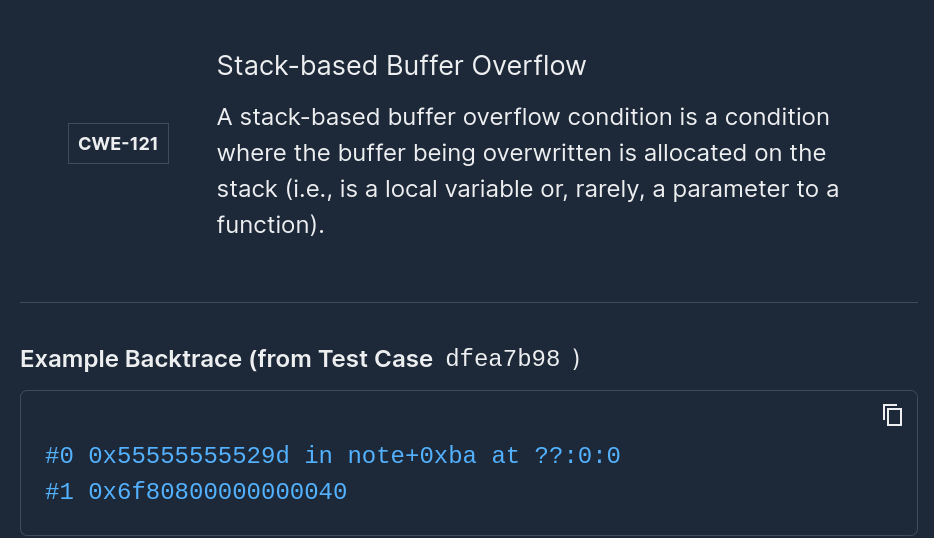3 Reasons Your Security Testing Tool Needs To Do Regression Testing

You knew that your application was secure when you scanned it for vulnerabilities prior to deploying it into production. But was it also secure when you applied an update or made a configuration change within the production environment?
Unless you've performed regression testing, you don't know. Regression testing is the only way to ensure that your software remains secure after you make changes. This is especially important if you use modern software development practices, such as CI/CD, which involve making regular updates to applications.
That's why incorporating regression testing into your security testing strategy is a best practice for minimizing risk. Keep reading for an overview of what regression testing means, how it affects security, and three reasons why modern teams need regression testing to complement other security testing strategies.
The What and Why of Regression Testing
Regression testing is the process of running tests again after you make changes to your software.
The purpose of regression testing is to determine whether changes have introduced new problems to an application. Even if an application previously passed all tests, it might fail some tests after you've made a configuration change or updated its code.
For example, imagine that your development team built a new feature for your application, and the new feature introduces an additional dependency that needs to be installed for the application to run. Imagine, as well, that the dependency is subject to a known security vulnerability.
When you ran security tests on the original version of the application, they wouldn't have detected the vulnerable dependency, because it didn't exist at the time. But in the new, updated version of the application, it does exist. In this case, a regression test would identify the vulnerability, allowing you to mitigate it before exposing your application to potential exploits.
Regression Testing and Security
You can use regression testing to manage many types of risks, not just security risks. Indeed, regression testing is more typically associated with usability and performance testing—where it helps ensure that application changes don't break functionality or cause performance degradation—than with security.
Yet, regression testing is a technique that security teams should also embrace. Any changes to an application have the potential to create security risks that didn't exist before, and regression testing is the only way to protect against them.
Three Reasons to Embrace Regression Testing for Security
We've explained at a high level why regression tests help improve security. But to be more specific, let's look at three particular reasons why regression testing is essential for optimizing security.
- Maximizing Security Vulnerability Detection
Even seemingly minor changes to an application could trigger new security vulnerabilities that didn't exist previously. For instance, modifying a single line of code could introduce an input injection vulnerability or create a new dependency on a vulnerable library or module.
This means that every single time you touch your application's codebase or configuration, you should be running regression tests. Waiting for "major" changes before you run new tests or assuming that developers won't make security oversights when they're dealing with small application updates is simply too risky.
- Enabling Continuous Testing
Regression testing is valuable from an operational standpoint, because it helps ensure that testing is smooth and continuous.
Security tests are important to ensure software reliability. Without automated regression tests, these tests may be done sporadically or without a set schedule. This can lead to a lack of consistency. You might decide to re-run your security scans only when you make a major change to an application rather than executing the tests each time the code is touched.
That's risky not only because it means you might not detect vulnerabilities quickly, but also because one-off, occasional security tests disrupt your ability to perform continuous tests of all kinds across the entire application delivery cycle. By designing your application delivery pipeline so that every update triggers new security regression tests, you can keep your entire test pipeline running smoothly.
- Fast, Efficient Resolution of Security Bugs
Regression tests enable developers to address the root causes of security problems as efficiently as possible by identifying security risks as early and quickly as possible in the software development lifecycle.
If you wait until an application update has been deployed into production to find a risk, it's likely to take much longer to fix the problem. Your developers will have to rewrite code that they've already integrated and built. They'll also have to update new code that depends on the buggy code. And they'll have to redeploy everything, leading to potential disruption to users if the application has to be taken down while the update is applied.
Discovering security bugs immediately via regression testing allows development teams to avoid this wasted time and effort.
Conclusion: Regression Testing Is for Security, Too
In short, although you might be accustomed to thinking of regression tests as something that only matters in the context of usability and performance testing, regression testing provides crucial security benefits, too. It helps teams discover security risks as quickly as possible while maintaining continuous testing pipelines and minimizing the time and resources required to fix security vulnerabilities.
Choose Mayhem: The Comprehensive Security Testing Solution with Regression Testing
If you want to ensure that your software is secure, you need a security testing tool that does regression testing. Mayhem is a developer-first security testing solution that automatically generates thousands of tests to identify defects in your team's apps and APIs.
Mayhem goes beyond just identifying new vulnerabilities—it also performs regression testing to ensure that fixes to previously found issues don't introduce new ones. This is crucial for maintaining the security and stability of your software over time.
Don't settle for a tool that only identifies new issues. Choose Mayhem for a complete security solution that includes regression testing. Try Mayhem today and experience the peace of mind that comes with knowing your software is secure.
Developer-First Security Testing
Mayhem is application security built by professional hackers. Every result is real and actionable for immediate triage and rapid remediation.
Get Mayhem Free Request A Demo
Bio

Chris Tozzi has worked as a Linux systems administrator and freelance writer with more than ten years of experience covering the tech industry, especially open source, DevOps, cloud native and security. He also teaches courses on the history and culture of technology at a major university in upstate New York.
Add Mayhem to Your DevSecOps for Free.
Get a full-featured 30 day free trial.




.jpg)